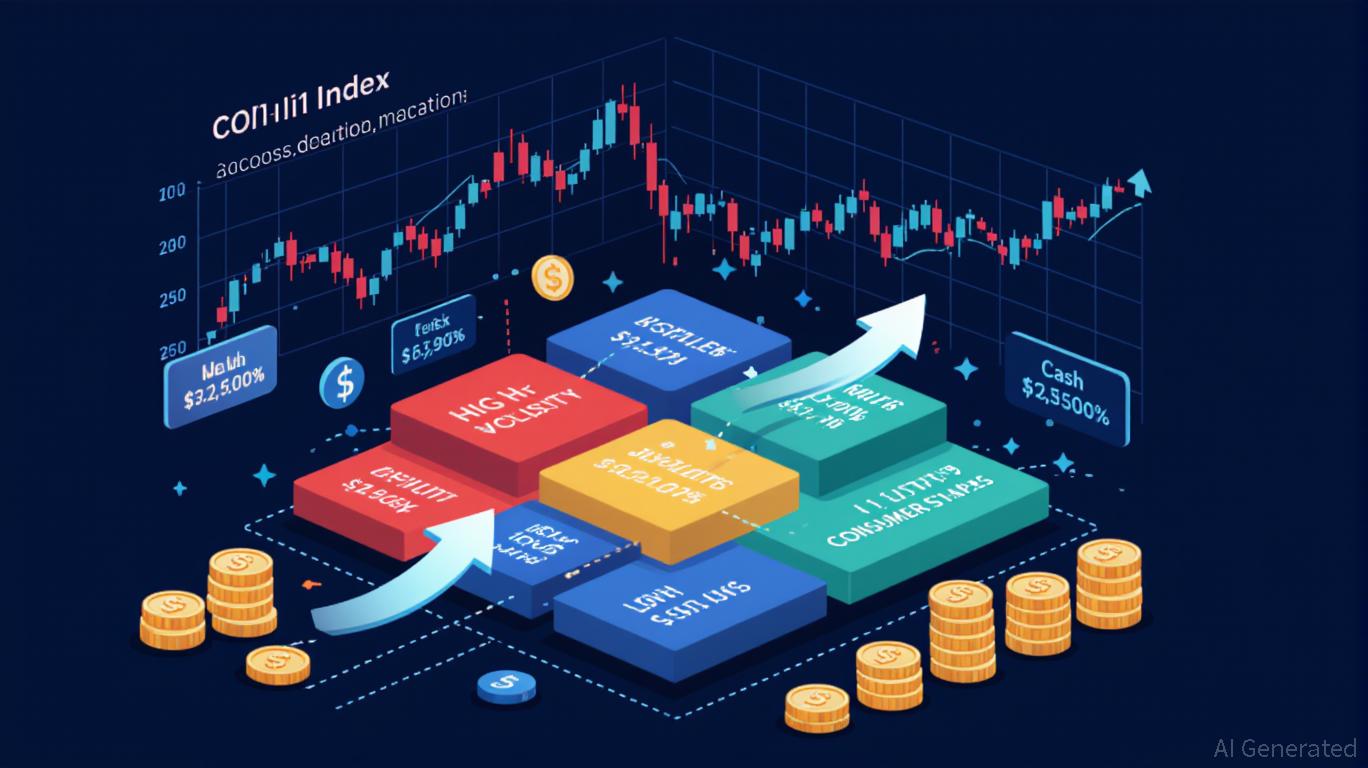Animoca Receives ADGM Authorization, Opening a Regulated Avenue for Institutional Web3 Investments
- Animoca Brands secures in-principle approval from ADGM to operate as a regulated fund manager, advancing its institutional Web3 investment strategy in the Middle East. - The conditional approval enables compliance-focused expansion, aligning with UAE's blockchain innovation goals and institutional-grade investment pathways in gaming, NFTs, and tokenized assets. - With stakes in 600+ Web3 ventures, Animoca plans to integrate its ecosystem into regulated structures, complementing its $1B valuation target v
Animoca Brands Secures Preliminary Approval to Operate as Regulated Fund Manager in Abu Dhabi
Animoca Brands, a prominent player in Web3 investments and infrastructure, has obtained initial approval from the Financial Services Regulatory Authority (FSRA) at Abu Dhabi Global Market (ADGM) to function as a regulated fund manager. This milestone is a significant advancement in Animoca’s mission to broaden its institutional presence in the Middle East and to connect traditional finance with blockchain-driven innovation. The in-principle approval, revealed on November 24, 2025, will allow Animoca to oversee collective investment funds within or from ADGM, contingent upon meeting all final regulatory requirements.
This regulatory nod is in line with Animoca Brands’ ongoing commitment to creating compliant avenues for institutional involvement in Web3. The company has long been at the forefront of gaming, NFTs, and digital asset sectors. The United Arab Emirates—especially Abu Dhabi and Dubai—has quickly become a global center for blockchain advancement, thanks to its progressive regulations and expanding digital asset infrastructure.
Animoca already operates in Dubai, and this latest approval further strengthens its strategy to develop regulated, institution-focused investment solutions in the region.

According to ADGM’s regulatory framework, this in-principle approval is subject to certain conditions. Animoca must satisfy requirements such as maintaining minimum capital levels, finalizing operational frameworks, and obtaining residency visas for key staff before it can receive full Financial Services Permission. Once these steps are completed, the company will be able to introduce regulated investment products focused on blockchain technology, gaming platforms, and tokenized assets.
With investments in over 600 Web3 projects—including notable names like Axie Infinity, The Sandbox, and OpenSea—Animoca aims to bring its extensive portfolio under a regulated umbrella, potentially paving the way for institutional-grade fund offerings.
Strategic Vision and Regional Impact
Omar Elassar, Animoca’s Managing Director for the Middle East, highlighted the UAE’s emergence as a major center for Web3 and digital assets. He emphasized that this regulatory progress is a crucial component of the company’s regional growth strategy. Additionally, this development aligns with Animoca’s recent plans for a reverse merger with Nasdaq-listed Currenc Group, aiming for a $1 billion valuation and a public listing by the end of 2026. This dual approach—focusing on regulatory compliance and market expansion—demonstrates Animoca’s ambition to strengthen its influence in both conventional and digital financial sectors.
The approval from ADGM is part of a broader movement in the UAE to establish itself as a global leader in digital asset regulation. By attracting innovative blockchain companies like Animoca, the region is positioning itself as a secure and transparent environment for technological advancement, while maintaining investor trust. For Animoca Brands, this conditional approval enhances its credibility and opens the door to greater access to regional capital and structured opportunities for institutional adoption of Web3 technologies.
Disclaimer: The content of this article solely reflects the author's opinion and does not represent the platform in any capacity. This article is not intended to serve as a reference for making investment decisions.
You may also like
Ethereum News Update: Avail’s Nexus Bridges Liquidity Across 12 Blockchains, Tackling Fragmentation
- Avail's Nexus Mainnet launches as a cross-chain execution layer unifying liquidity across 12 blockchains including Ethereum and BNB Chain. - The intent-solver architecture automates optimal routing while aggregating liquidity from multiple chains through Avail's data availability layer. - Developers gain simplified cross-chain integration via SDKs and APIs, enabling real-time collateral pools and intent-based trading without managing bridges. - With Solana integration planned and Infinity Blocks roadmap

Ethereum News Update: Ethereum Drives Institutional Transformation with Amundi Tokenizing Major Fund
- Amundi tokenizes a money market fund on Ethereum , signaling institutional adoption of blockchain-based asset management. - Ethereum's upgrades like PeerDAS and Bhutan's $970k ETH staking highlight growing institutional trust in its infrastructure. - CoinShares' $250M Bitcoin Miners ETF and global digital ID initiatives underscore tokenization's role in modernizing finance. - Ethereum's $3,100 price resistance and technical indicators suggest potential for long-term resilience amid scaling improvements.

Hyperliquid News Today: Hyperliquid Adopts Tidewater’s Strategy to Streamline Crypto Risk Management
- Hyperliquid introduces automated downsizing to stabilize HYPE, which dropped 52% from its peak. - Strategy mirrors Tidewater Renewables' capacity management, balancing short-term volatility with long-term stability. - Hyperliquid Strategies DAT plans $300M HYPE buybacks to inject liquidity and institutional-grade risk frameworks. - Market faces $1.89B+ liquidation risks if Bitcoin/Ethereum surge, prompting automated buffers to prevent cascading sell-offs. - Approach reflects growing DeFi adoption of algo
The Unexpected COAI Price Decline: Key Lessons for Investors from the November 2025 Market Turbulence
- COAI Index's 88% November 2025 collapse stemmed from C3.ai governance failures, regulatory ambiguity, and panic-driven herd behavior. - Market psychology amplified losses as investors overreacted to AI sector risks, ignoring fundamentals and triggering liquidity crises. - Diversification, cash reserves, and AI-driven tools helped mitigate risks, emphasizing long-term strategies over speculative hype. - The crisis exposed dangers of overreliance on AI/DeFi narratives, urging disciplined, diversified portf
